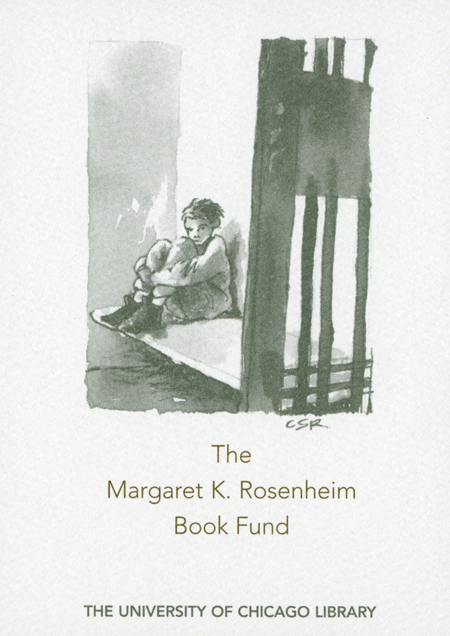|
|
|
|
| LEADER |
00000cam a2200000 i 4500 |
| 001 |
9700925 |
| 003 |
ICU |
| 005 |
20140423154900.0 |
| 008 |
130530s2014 nyua b 001 0 eng |
| 010 |
|
|
|a 2013020339
|
| 020 |
|
|
|a 9781479850099
|
| 020 |
|
|
|a 1479850098
|
| 020 |
|
|
|a 9781479878123 (pbk. : acid-free paper)
|
| 020 |
|
|
|a 147987812X (pbk. : acid-free paper)
|
| 035 |
|
|
|a 9700925
|
| 035 |
|
|
|a (OCoLC)844308903
|z (OCoLC)844308918
|
| 040 |
|
|
|a DLC
|e rda
|b eng
|c DLC
|d IG#
|d YDXCP
|d BTCTA
|d BDX
|d OCLCO
|d UKMGB
|d UtOrBLW
|
| 043 |
|
|
|a n-us-ca
|
| 082 |
0 |
0 |
|a 261.8/3310660979494
|2 23
|
| 084 |
|
|
|a SOC002000
|a REL000000
|a SOC008000
|2 bisacsh
|
| 090 |
|
|
|a HV6439.U7
|b L725 2014
|
| 100 |
1 |
|
|a Flores, Edward.
|0 http://id.loc.gov/authorities/names/no2009055147
|1 http://viaf.org/viaf/86347789
|
| 245 |
1 |
0 |
|a God's gangs :
|b barrio ministry, masculinity, and gang recovery /
|c Edward Orozco Flores.
|
| 264 |
|
1 |
|a New York :
|b New York University Press,
|c [2014]
|
| 300 |
|
|
|a xiii, 230 pages :
|b illustrations ;
|c 23 cm
|
| 336 |
|
|
|a text
|2 rdacontent
|0 http://id.loc.gov/vocabulary/contentTypes/txt
|
| 337 |
|
|
|a unmediated
|2 rdamedia
|0 http://id.loc.gov/vocabulary/mediaTypes/n
|
| 338 |
|
|
|a volume
|2 rdacarrier
|0 http://id.loc.gov/vocabulary/carriers/nc
|
| 504 |
|
|
|a Includes bibliographical references (pages 211-224) and index.
|
| 520 |
|
|
|a "Los Angeles is the epicenter of the American gang problem. Rituals and customs from Los Angeles' eastside gangs, including hand signals, graffiti, and clothing styles, have spread to small towns and big cities alike. Many see the problem with gangs as related to urban marginality--for a Latino immigrant population struggling with poverty and social integration, gangs offer a close-knit community. Yet, as Edward Orozco Flores argues in God's Gangs, gang members can be successfully redirected out of gangs through efforts that change the context in which they find themselves, as well as their notions of what it means to be a man. Flores here illuminates how Latino men recover from gang life through involvement in urban, faith-based organizations. Drawing on participant observation and interviews with Homeboy Industries, a Jesuit-founded non-profit that is one of the largest gang intervention programs in the country, and with Victory Outreach, a Pentecostal ministry with over 600 chapters, Flores demonstrates that organizations such as these facilitate recovery from gang life by enabling gang members to reinvent themselves as family men and as members of their community. The book offers a window into the process of redefining masculinity. As Flores convincingly shows, gang members are not trapped in a cycle of poverty and marginality. With the help of urban ministries, such men construct a reformed barrio masculinity to distance themselves from gang life. Edward Orozco Flores is Assistant Professor of Sociology at Loyola University Chicago. "--
|c Provided by publisher.
|
| 650 |
|
0 |
|a Hispanic American gangs
|z California
|z Los Angeles.
|
| 650 |
|
0 |
|a Ex-gang members
|x Rehabilitation
|z California
|z Los Angeles.
|
| 650 |
|
0 |
|a Ex-gang members
|x Services for
|z California
|z Los Angeles.
|
| 650 |
|
0 |
|a Church work with Hispanic Americans
|z California
|z Los Angeles.
|
| 650 |
|
0 |
|a Church and social problems
|z California
|z Los Angeles.
|
| 650 |
|
0 |
|a Hispanic American men
|z California
|z Los Angeles
|x Social conditions.
|
| 650 |
|
7 |
|a SOCIAL SCIENCE / Anthropology / General.
|2 bisacsh
|
| 650 |
|
7 |
|a RELIGION / General.
|2 bisacsh
|
| 650 |
|
7 |
|a SOCIAL SCIENCE / Ethnic Studies / General.
|2 bisacsh
|
| 650 |
|
7 |
|a Church and social problems.
|2 fast
|0 http://id.worldcat.org/fast/fst00860491
|
| 650 |
|
7 |
|a Church work with Hispanic Americans.
|2 fast
|0 http://id.worldcat.org/fast/fst00860991
|
| 650 |
|
7 |
|a Hispanic American gangs.
|2 fast
|0 http://id.worldcat.org/fast/fst01747120
|
| 651 |
|
7 |
|a California
|z Los Angeles.
|2 fast
|0 http://id.worldcat.org/fast/fst01204540
|
| 903 |
|
|
|a HeVa
|
| 929 |
|
|
|a cat
|
| 999 |
f |
f |
|i ca5be6ec-9220-54a9-b4ae-f9f12a4fc6fd
|s e3e6e0b1-9f40-5e51-9506-7e00cb8a9a87
|
| 928 |
|
|
|t Library of Congress classification
|a HV6439.U7 L725 2014
|l SSAd
|c SWL-SWL
|i 1214018
|
| 927 |
|
|
|t Library of Congress classification
|a HV6439.U7 L725 2014
|l SSAd
|c SWL-SWL
|e MKRO
|b 109027076
|i 9227027
|

